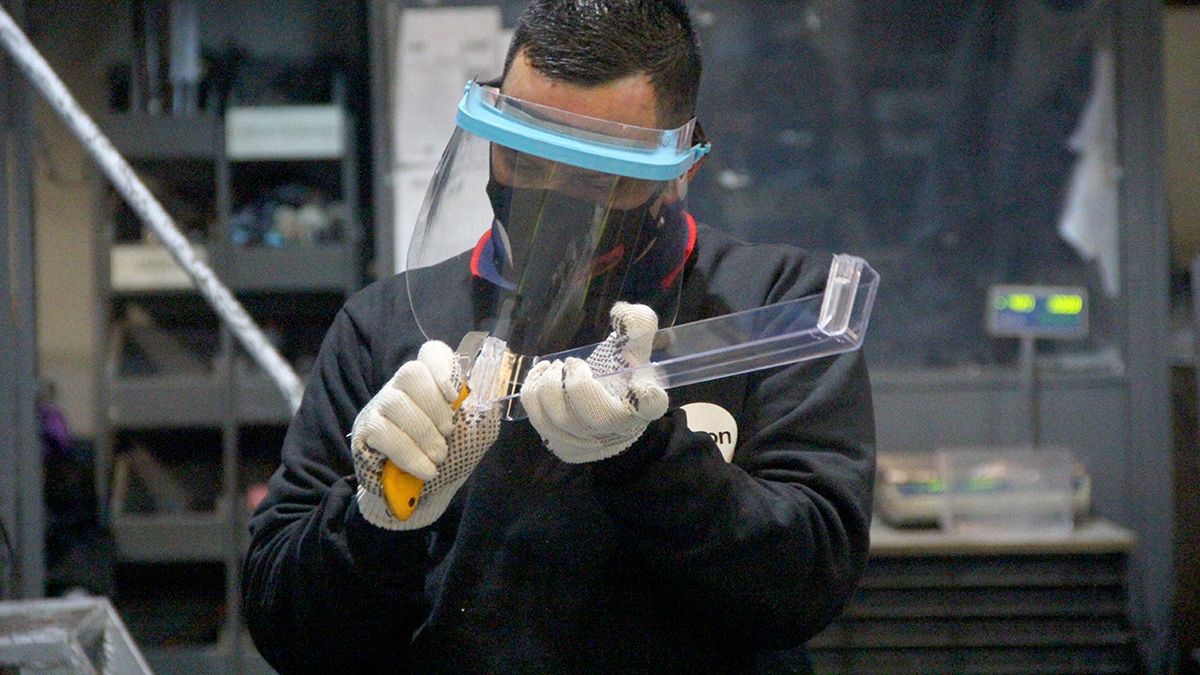He metallurgical sector registered a 19.5% year-on-year drop in April and accumulated a contraction of 8.6% in the first quarter, according to a report from the Association of Metallurgical Industrialists of the Argentine Republic (ADIMRA).
Meanwhile, in relation to March, a decrease of 2.3% was verified. President Javier Milei stated in the last hours that the economic activity had hit a “floor between March and April” and this balance of the sector is framed within that framework.
But according to ADIMRA “the contraction recorded during April is one of the four strongest in the last 8 yearssecond only to three of the strictest months regarding restrictions linked to the pandemic of 2020.
However, the report indicates: “Despite the strong contractions in activity observed in recent months, a situation of such magnitude has not yet been observed in the level of employment provided by companies in the sector. If we compare against the previous month , Employment contracted -0.5%, but relative stability has been observed since mid-2022“.
In another order, the use of the Installed capacity also fell, reaching -13.4% below the same month of the previous year and -8% below the 2023 average.
adimra3.png
The use of installed capacity also fell, reaching -13.4% below the same month last year.
Metallurgical sector: what happened in each sector
At the sector level, a systemic fall was again recorded in all the subsectors that make up the metallurgical industrial network, with double-digit contractions. and drops of up to -23% compared to the same month of the previous year.
The supplying companies of the value chains of the construction and final consumption are the ones that have demonstrated worse relative performances, with falls exceeding -20% year-on-year.
On the other hand, those that provide oil, gas and mining sectors have demonstrated the best performances relative although on average they also register falls in their production.
The sector of Body and trailer (-23.2%) Foundry (-22.3%), Medical Equipment (-22.2%) and Capital Goods (-20.4%), have been among the most affected during the current month, with falls that exceed the general average while Agricultural Machinery (-15.2%) was one of the sectors that have fallen the least during the month.
ADIMRA2.png

Those that supply the oil, gas and mining sectors have demonstrated the best relative performances
In the analysis by value chain, there were generalized declines but with some significant differences, centered on companies linked to the oil, gas and mining chains that have once again experienced smaller contractions in their level of activity than the rest of the companies.
Establishments linked to the construction value chain continue to register much stronger declines than the general average as a result of the decrease in public works and construction activity in general.
With respect to the situation of the main metallurgical provinces, it is observed, again, generalized falls in all regions with values ranging between -13% and -21%.
In Santa Fe (-21.2%) the production of the sector fell much more sharply than in the rest of the provinces, influenced by the low levels of activity that the Agricultural Machinery sector still registers, which is very important in the region. On the other hand, Córdoba (-11.4) and Entre Ríos (-12.9%) registered the smallest falls in relative terms. In Mendoza (-15.3%), some companies linked to the oil and gas chain contributed to mitigating the decline in the province. In Buenos Aires (-19.1%).
Meanwhile, the Agricultural Machinery sector seems to be beginning to recover with companies that are increasing their production compared to a previous year that was very bad as a result of the drought.
Bases Law: ADIMRA’s warning about the RIGI
ADIMRA president Elio Del Re warned: “Production continues at a constant fall trail in line with domestic demand and the use of installed capacity, so it is necessary to promote investment with the promotion of the development of the national industry” and emphasized that the Large Investment Regime –RIGI- presented in the draft Base Law “can generate a scenario of unfair competition with imported productswhich may further deepen the decline in production and employment rates.”
Source: Ambito




